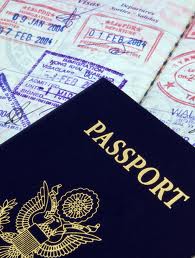Responsible Traveler
Travelers should go with respect
It’s vacation time, 100 years from now. Your great-great-grandchildren pack camping gear into their FAST (Ford-Audi-SaabToyota) personal jet and set off for the woods. After skimming above hundreds of miles of blackened acres that have been designated as highway, they arrive at the forest — for which they made reservations months before. They park, unload their luggage and step in to a futuristic Noah’s Ark, a glass-enclosed environmental preserve containing what’s left of Earth’s trees and wildlife.
This may be alarming, but it’s not too far-fetched. For a long time, evironmentalists been concerned about the cummulative effects of acid rain, deterioration of the ozone and tree cutting. In the last decade, the growth of adventure tourism has posed additional threats.
With increased visits to remote and ecologically fragile areas —Antarctica, South American rain forests, the Galapagos Islands, African plains, coral atolls, the Andes and the Himalayas — comes the risk of damage.
This urge to visit remote regions will only continue, and it’s crucial for tourists to be informed about the long-term effects they may have on the environment and to take responsibility for the future, says Megan Eppler Wood, executive director of the Ecotourism Society, a nonprofit association of tourism professionals.
The society, National Audubon Society, American Society of Travel Agents and other organizations developed guidelines for responsible travel. They include:
- Travel in the spirit of humility, showing appreciation for things you see.
- In wilderness areas, remain on marked trails, keep 20 to 30 feet from wildlife, do not take anything (plants, rocks, shells, seeds, animals), do not introduce anything (plants, seeds, animals).
- Never leave waste in a wilderness area; when at sea, don’t dump plastic or nonbiodegradable garbage.
- Don’t interfere with protected areas or scientific research.
- Respect the way other cultures do things.
- Study before you go, to learn local customs and several phrases.
- Don’t expect or demand special privileges just because you’re American.
- Respect the privacy of local people; ask before taking photos.
- Don’t bargain below a fair price.
- Never purchase products made from endangered plants or animals, including orchids, cacti, sea turtles, crocodiles, snakes, lizards, pangolin (anteaters), ivory, wild birds and their skins and feathers, coral, furs of spotted cats, marine mammals and polar bears. For a specific list, check the U.S. Customs’ “Know Before You Go” pamphlet.
- Don’t give local kids candy or encourage them to ask for handouts.
- Don’t make promises to local people that you cannot keep.
For a list of environmentally conscious tour operators, contact the Ecotourism Society at:
P.O. Box 755, North Bennington, VT 05257; 802-447-2121 or on-line at www.ecotourism.org




